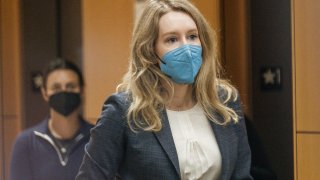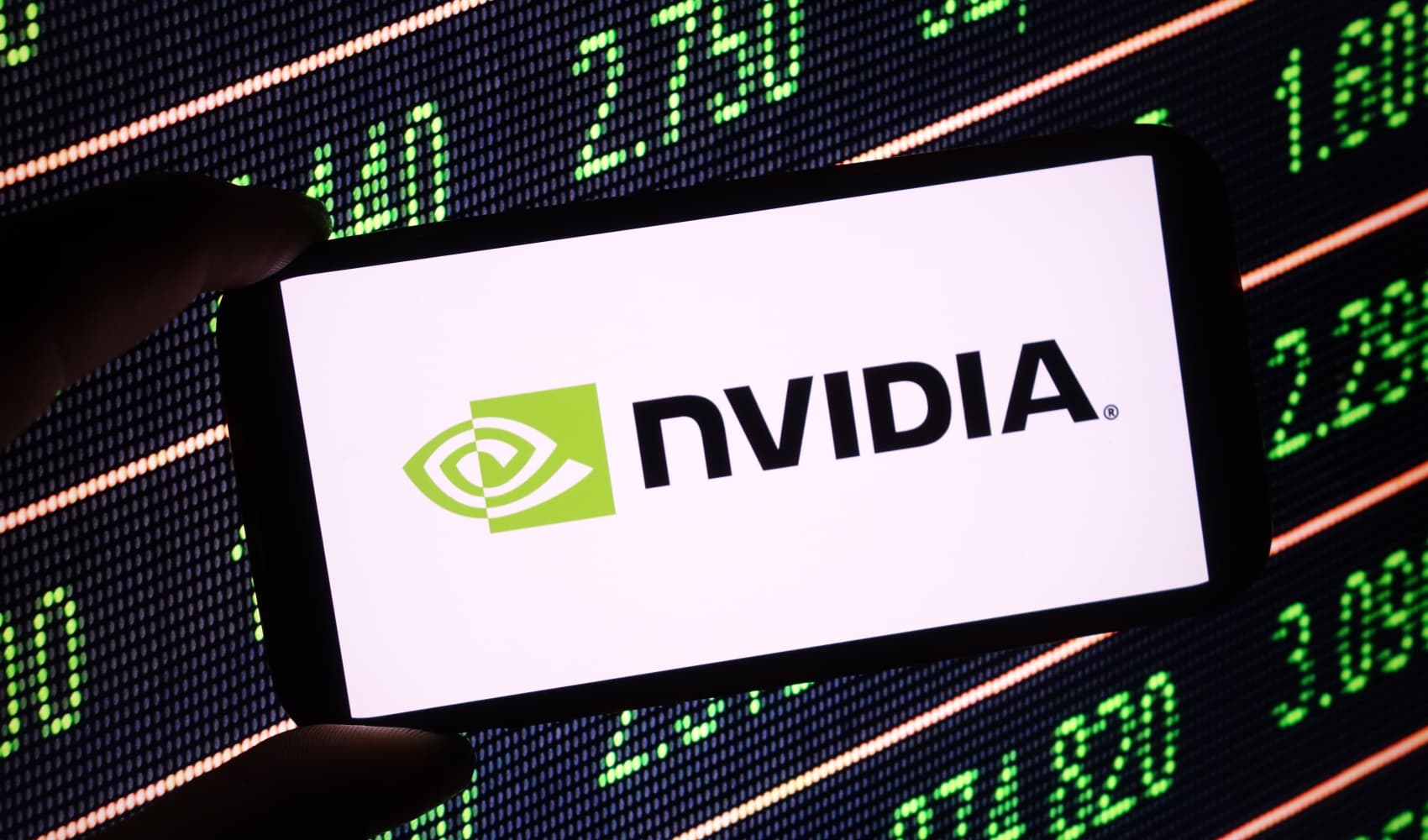
- Theranos founder Elizabeth Holmes was called to the stand in her criminal trial on Friday.
- After 11 weeks of witnesses called by the prosecution, the defense began to make its case Friday morning.
- The defense hadn't indicated whether Holmes would testify.
SAN JOSE, CALIF — Elizabeth Holmes removed her mask and, with a smile on her face, took the stand on Friday to testify in her criminal trial, a sudden and surprising move by the defense team, which began its case earlier in the day.
Holmes, 37, faces 11 counts of wire fraud and conspiracy to commit wire fraud for her actions as founder and CEO of Theranos, which she led from 2003 until the company shut down in 2018. She pleaded not guilty.
In the first 11 weeks of the trial, the prosecution called 29 witnesses, including former lab directors, patients, doctors, business partners and investors. The government rested its case on Friday morning, following the testimony on Thursday of journalist Roger Parloff, who wrote the 2014 Fortune magazine cover story, "This CEO Is Out For Blood."
Holmes could spend up to two decades in prison if she's convicted. She's denied any wrongdoing.
Defense lawyers hadn't indicated whether Holmes would take the stand. But she was called and confidently walked up shortly after 3 p.m. California time. It's the first time jurors have seen Holmes in person without a mask.
Money Report
Kevin Downey, one of Holmes' defense attorneys, began the questioning. In one of her first statements, Holmes said that between 2009 and 2010, her team made a technological breakthrough.
"We worked for years with teams of scientists and engineers to miniaturize all of the technologies in the laboratory," Holmes said.
Get a weekly recap of the latest San Francisco Bay Area housing news. >Sign up for NBC Bay Area’s Housing Deconstructed newsletter.
Downey asked Holmes about her public pronouncements regarding how many tests Theranos could run and whether she was limiting her comments to certain types of tests. Holmes said, "No."
Multiple company insiders, including whistleblower and former lab assistant Erika Cheung, testified that Theranos' devices couldn't run more than 12 different tests, which contradicted the company's statements. Holmes had told prospective investors and others that Theranos' proprietary technology could run 1,000 blood tests.
Holmes, keeping her eyes mostly focused on her lawyer and not looking at the roughly 50 other people in the room, walked through her background at Stanford and her decision to drop out and pursue her start-up idea. She said she initially called the company Real-Time Cures and changed the name to Theranos in 2005. She told jurors that she tried to raise some money, get a lab and hire scientists.
"We were prototyping," Holmes said, adding that the early team was trying to build components of the technology. "I had the opportunity to hire some of the people I was working for and with at Stanford."
Downey asked Holmes how she financed the early days of the company.
"I started with talking to my parents and they let me take the money they saved for me to go to college," Holmes said. "Then I went to go borrow money."
Over the years, Holmes went on to raise more than $940 million from institutions and wealthy individuals, eventually reaching a valuation for the company of $9 billion. Numerous investors took the stand on behalf of the prosecution, telling the jury they were duped by Holmes, who allegedly misled them on the capabilities of the technology and its traction in the market.
Holmes on Friday was asked about Don Lucas, one of the company's earliest backers and the founder of Lucas Venture Group. Holmes said she met Lucas when the company was raising its Series B financing round.
"Don Lucas was one of the early VCs in Silicon Valley," Holmes said. "I knew him as someone who focused on building great companies in the long term," she said, naming Oracle, National Semiconductor and Adobe as some of his investments.
"I was introduced to him by someone who had gone to college with my dad," she said. "He had a lot of questions. He began a very comprehensive diligence process."
Downey asked what that included.
"He hired a law firm to review our patents," Holmes said. "He asked us to get an audit of our financials. He wanted copies of our contracts."
Holmes said she later met Oracle founder Larry Ellison through Lucas. Ellison ended up joining the Series C investment round, along with Lucas and his nephew, Chris Lucas, who was one of the investors called by the prosecution.
Holmes' testimony lasted roughly an hour, ending around 4:10 p.m., when Judge Edward Davila said the court would be in recess until Monday. Holmes will likely remain on the stand through Tuesday of next week, her lawyer said. They'll have the rest of the week off for the Thanksgiving holiday.
WATCH: Prosecutors expected to wrap up case against Theranos' Elizabeth Holmes






